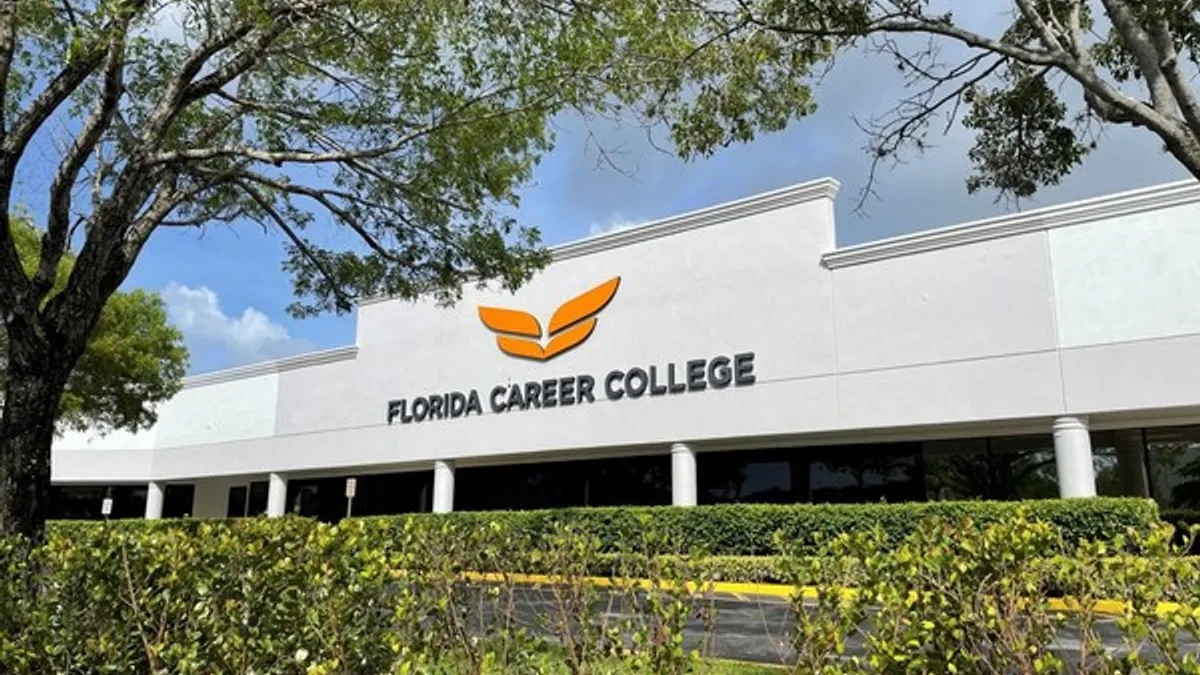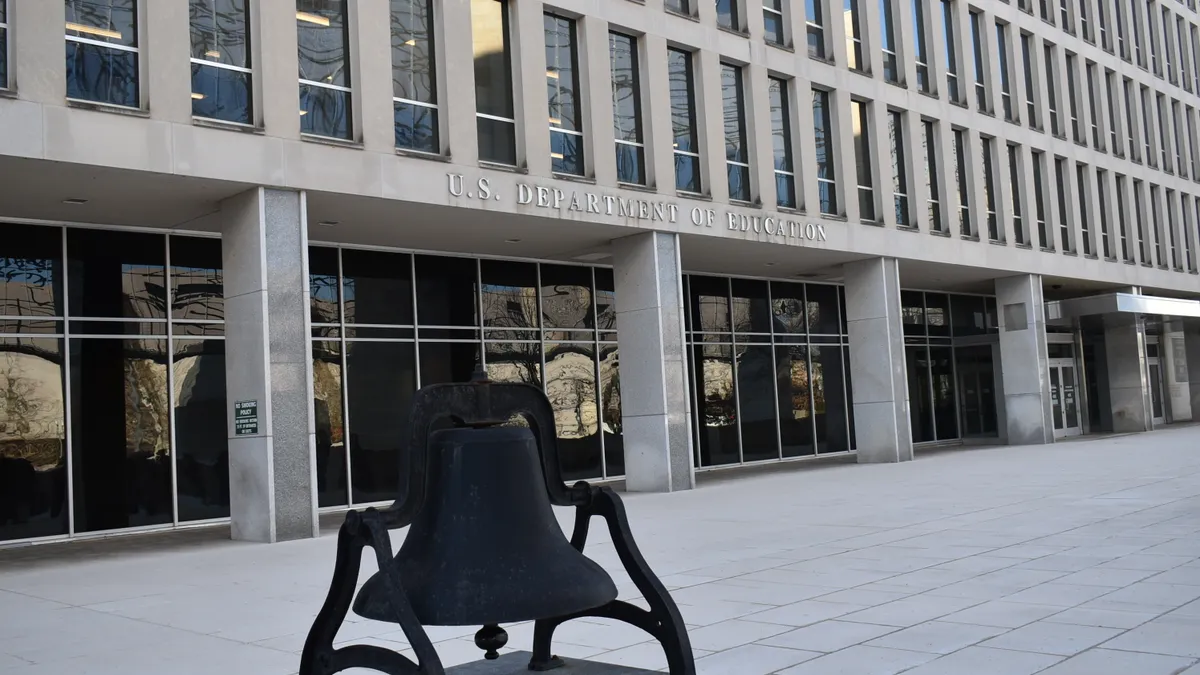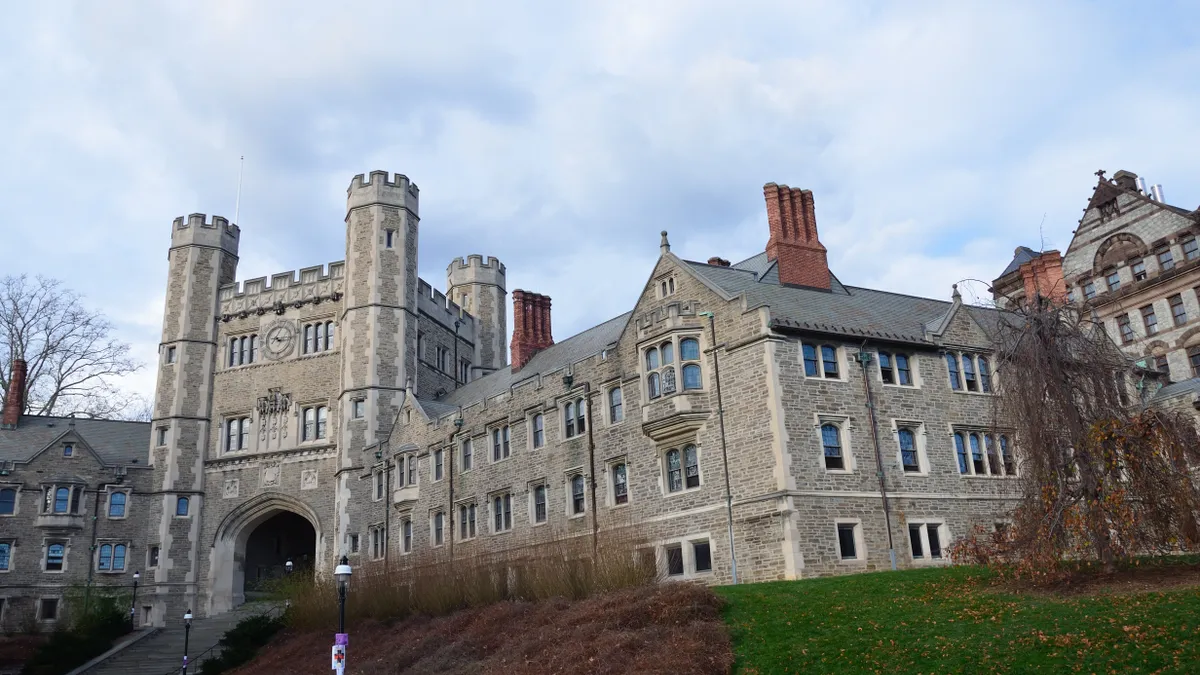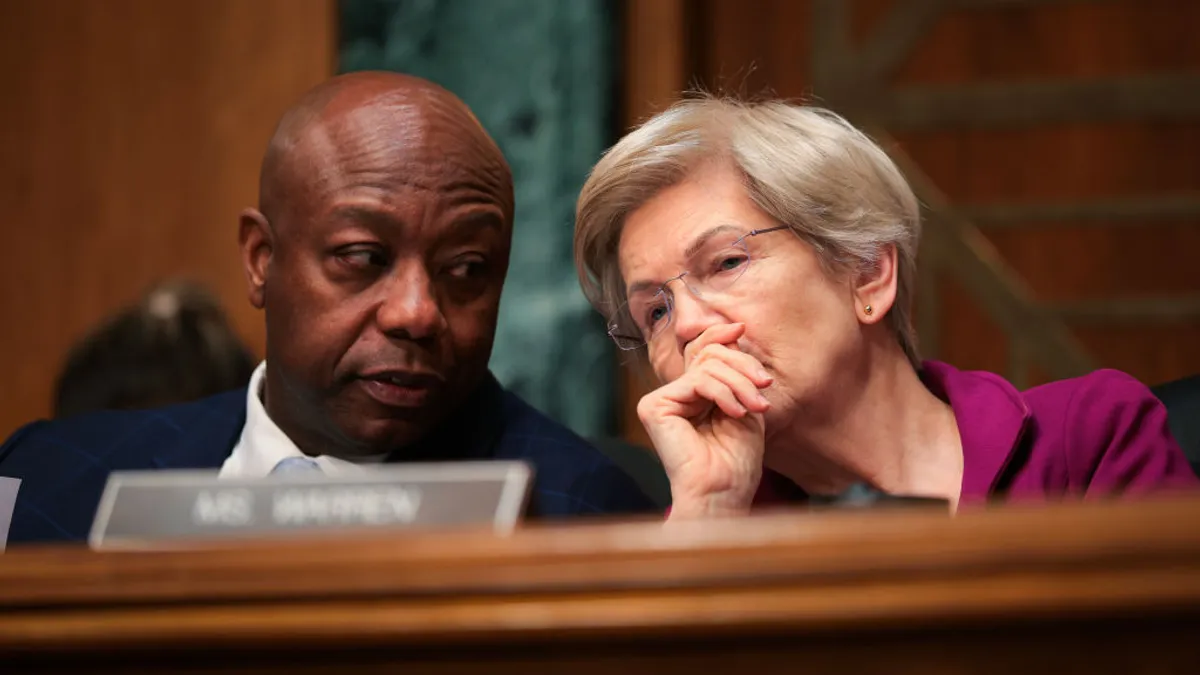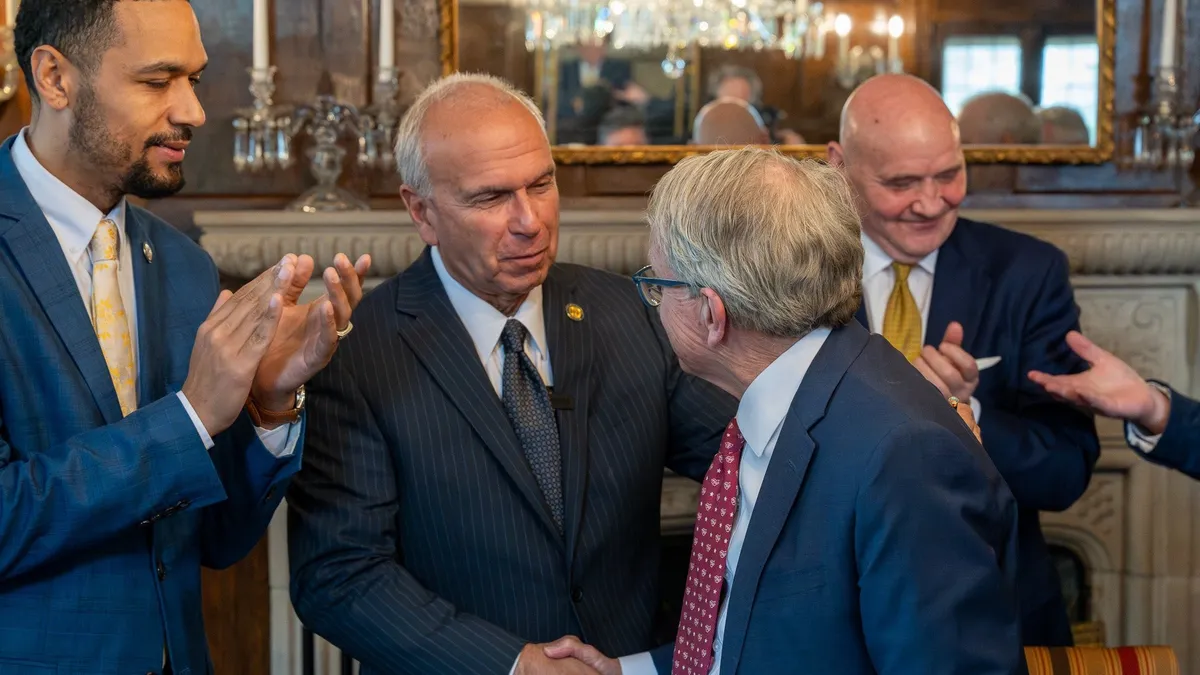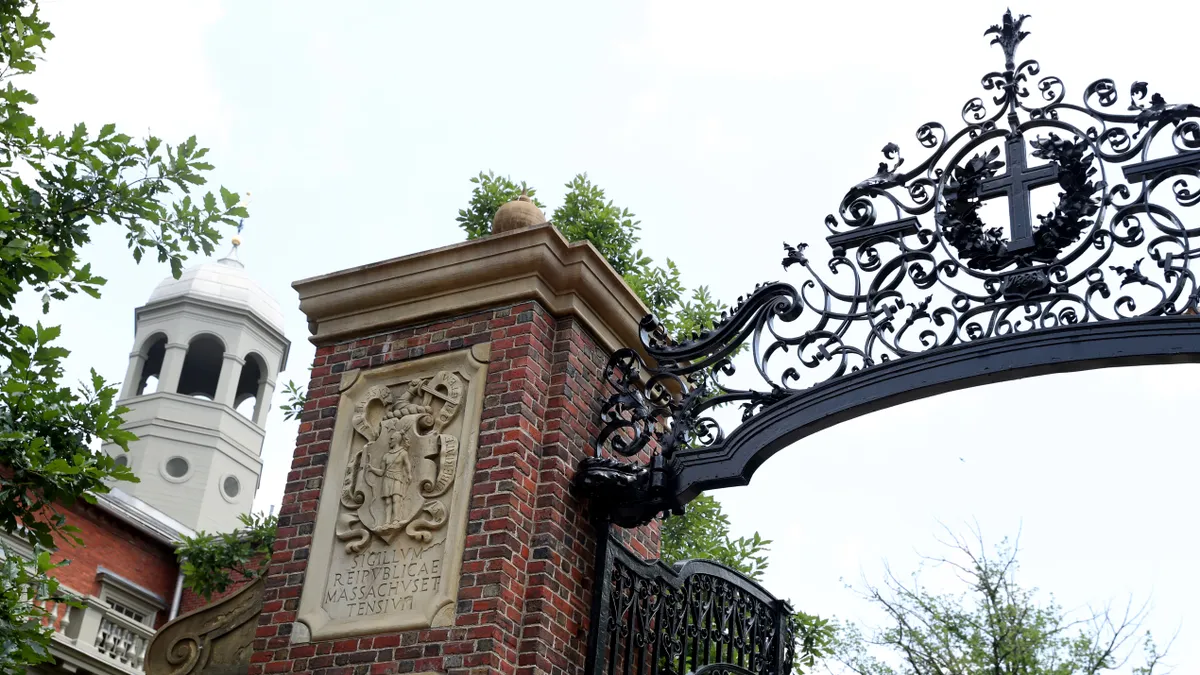The U.S. Department of Education caused a stir in April when it declared it would bar a major for-profit college in Florida from participating in federal financial aid programs.
The Education Department accused Florida Career College, or FCC, of helping students with answers on a test that allows them to qualify for federal student aid, as well as allowing them to break exam rules.
The department said it was “holding Florida Career College accountable for taking advantage of some of the most vulnerable students,” Richard Cordray, chief operating officer of the Office of Federal Student Aid, said in a statement at the time.
Many federally funded colleges rely on Title IV infusions. And without the money, FCC — which the Education Department said at the time enrolled about 5,000 students across 11 campuses in Florida and Texas — appeared certain to close. It received $86.4 million in Title IV money for the fiscal year ending in 2021, accounting for almost 88% of its revenue.
But more recently, college representatives have publicly intimated the Education Department isn’t taking such a hard line against the institution, and suggested agency representatives are open to not shutting it down. While the Education Department can’t close a college by itself, taking away federal money in effect accomplishes that.
The college owner’s accreditor is also scrutinizing the controversy.
What allegations is FCC facing?
FCC offers short-term programs in areas like business, healthcare and HVAC repair.
The college and its owner International Education Corp. allegedly pressured exam proctors to pass students who were taking what’s known as Ability-to-Benefit, or ATB, test, the Education Department said in April.
Normally, students who have not finished a high school education or equivalency don’t qualify for federal financial aid, but they can if they pass the test.
Proctors also manipulated exam results, including by filling in or changing answers for students who finished the assessment, helping students during the test, and letting them use calculators in violation of testing rules, the department said.
FCC at the time derided the Education Department’s decision as “myopic and misguided” and promised to fight it.
The department's Office of Federal Student Aid periodically denies colleges Title IV funding access, but rarely has this happened for an institution of that size. The enforcement action was one of the most significant the agency had ever taken.
However, the department offered FCC a deal.
It could lose Title IV funding at the end of April, or if it agreed to certain conditions — like developing transfer agreements with other colleges, called teach-outs — then that deadline would move to September.
What’s going on now?
But the college went with neither option, because the Education Department eventually provided the college even more flexibility.
At a meeting last month of the Florida Commission for Independent Education, which regulates the state’s private colleges, an FCC representative said the department had extended its Title IV eligibility through January 2024.
In an emailed statement, Joseph Cockrell, spokesperson for International Education Corp., confirmed this was the case.
“We thank the Department for extending access through January, allowing more FCC students to complete their programs,” Cockrell wrote.
The college also updated the commission last month on its appeal to the department. Aaron Mortensen, senior vice president and general counsel for International Education Corp., told the panel that “we continue to have conversations with the U.S. Department of Education and believe that we’re making progress in that regard.”
Mortensen said the college has made “significant progress” in teach-outs — but that it anticipated “graduating the vast majority of students” by the end of January. It is not enrolling new students.
Cockrell also said most students would graduate and that teach-outs were “in various stages of development.”
“Despite all that has happened, FCC students are staying in school, showing up for classes, finishing their programs, and securing employment,” Cockrell said. “This level of persistence and success demonstrates that FCC students are satisfied, and they recognize the value of the education they are receiving.”
A U.S. Department of Education spokesperson said Friday that FCC has not asked for additional extensions for Title IV funding eligibility. The spokesperson said the department can’t share a date by which it will decide on the college’s aid eligibility.
FCC is required to submit monthly reports to the Education Department regarding its progress with teach-outs for its Title IV students, the spokesperson said.
At a May meeting of the commission, Timothy Moscato, the company’s regional vice president of operations, had said that FCC “respectfully but vehemently” denied the Education Department’s accusations.
FCC had met with department officials that month, he said. Moscato painted a rosy picture — saying department officials walked away knowing “more about who we really are, which is an organization genuinely committed to student success, with integrity, and that complies with all regulations and standards.”
Moscato also said the department “expressed an openness to working together to identify a resolution, something less extreme than shutting down FCC.”
The Education Department spokesperson declined to address the remark.
“The Department is not going to comment on, confirm, or contradict the statement that FCC has attributed to it,” the spokesperson said. “However, as the Department did by having a discussion with FCC, the Department is always open to hearing from stakeholders impacted by the Department’s actions, including students, borrowers, and institutions.”
Even more scrutiny
The Education Department isn’t the only entity zeroing in on FCC’s owner.
FCC’s accreditor is the Council on Occupational Education, and its meeting in June deferred renewal of the college’s accreditation.
But in May, the accreditor for some of International Education Corp.’s other institutions — the Accrediting Commission of Career Schools and Colleges, or ACCSC — voted to give a warning to those colleges with the plan that the organization would review them again at a meeting this month.
The accreditor cited the department’s decision and said the company must demonstrate that FCC’s leaders “have past records that demonstrate a commitment to providing quality education to students; ethical, fair and honest practice” and that they’re following local, state and federal rules.
Cockrell said the accreditor’s action was not punitive. But the company’s ACCSC-accredited institutions cannot substantively change curriculum, add new programs or locations until the accreditor’s concerns are addressed, he said.
The college, meanwhile, had run into trouble even before the ATB test scandal.
In 2021, former FCC students unsuccessfully sued the college, alleging it aggressively targeted Black applicants through misleading advertising, leading to substantial debt burdens.
It was sold in 2014 by another for-profit operator, FCC Holdings Inc.
That company also faced controversy over accusations it improperly drew federal financial aid money based on inaccurate enrollment projections. FCC Holdings settled with the Education Department for $8 million in a subsequent bankruptcy case in 2020.



